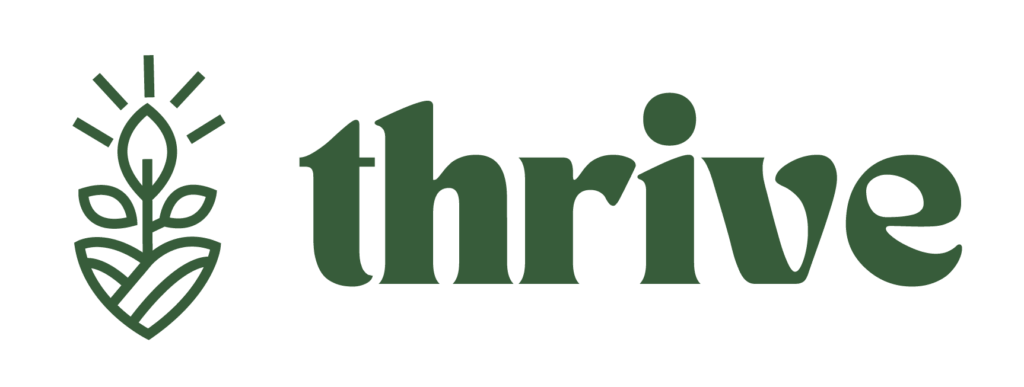Efficient md billing and consulting are critical for keeping medical practices financially secure and operationally streamlined. As regulations become more complex, managing claim submission, coding, and revenue cycle management can challenge even the most capable teams.
Outsourcing to a professional medical billing company, like Thrive Medical Billing, gives your practice a competitive edge by refining the billing process and helping you maximize revenue and financial performance.
This guide explores how medical billing consulting services empower your practice and highlights why Thrive Medical Billing stands out as your ideal billing and consulting partner.
What is MD Billing and Consulting?
MD billing and consulting services are designed to optimize practice management by expertly handling revenue cycle management, claim submission, precise coding, compliance, and efficient billing and collections. Thrive Medical Billing assists healthcare providers—whether small clinics or major medical practices—by simplifying day-to-day financial operations so you can focus on patient care.
Benefits of Medical Billing Consulting Services with Thrive
Boost Financial Performance and Maximize Revenue
Delays or errors in the billing process often result in lost income. Thrive Medical Billing ensures swift, correct claim submission while monitoring for common pitfalls that can undermine your financial performance. Our expertise in billing and collections helps you pinpoint and recover lost revenue, allowing your practice to truly maximize revenue potential.
Ensure Compliance and Accuracy
With constantly evolving guidelines from insurance companies and regulatory bodies, maintaining compliance is a challenge. Thrive’s medical billing consultants are well-versed in the latest healthcare rules, including HIPAA, ICD-10, and CPT. We help minimize errors and decrease the risk of costly penalties, protecting your medical practice’s reputation.
Reduce Administrative Burdens
Managing billing and consulting operations internally may pull valuable resources away from patient care. By partnering with Thrive Medical Billing, you free your team from tedious administrative tasks like insurance company communications, scheduling, and collections—allowing you to keep your focus on patient care.
Expert Insurance Experience
MD billing and consulting is more than data entry; it requires deep knowledge of insurance companies, appeal processes, and reimbursement rules. Thrive Medical Billing efficiently navigates changes in insurance policy, handles denials, and negotiates payment issues, ensuring your claims are paid promptly and in full.
Advanced Technology for Practice Management
Our medical billing company uses leading-edge billing technology for revenue cycle management, claim tracking, analytics, and reporting. These tools enhance your financial performance by reducing errors and offering real-time insights into your billing process and overall collections.
Customized Solutions Across Specialties
Each specialty within medical practices has unique requirements for billing and consulting. Thrive Medical Billing’s consultants tailor their services to fit your discipline, whether it’s primary care, surgery, mental health, or another area. We ensure your processes comply with industry standards and meet the specific challenges of your field.
Why Thrive Medical Billing Is Essential for Medical Practices
Fewer Claim Denials and Rejections
A significant threat to revenue in medical practices is denial of claims. Thrive Medical Billing’s md billing consultants perfect the claim submission process and tenaciously follow up to ensure payment. Our attention to detail in revenue cycle management drastically reduces denied or rejected claims.
Improve Patient Satisfaction
Inaccurate billing and delayed insurance payments can damage patient relationships. Thrive Medical Billing’s clear, timely communications foster transparency and trust so your patients always know where they stand—enhancing your reputation and making it easier to focus on patient care.
When to Use POS 32
Using the correct POS code is essential for accurate claim submission and reimbursement. Here are key scenarios where POS 32 should be used:
- Services Provided in a Long-Term Care Nursing Facility: If a patient receives healthcare services in a nursing facility that is primarily for long-term care, POS 32 is appropriate. This includes services like routine physicals, wound care, or chronic condition management for long-term residents.
- Patients Without Medicare Part A Coverage for SNF Stays: If a patient is in a facility that can be classified as both an SNF and a nursing facility but does not have Medicare Part A coverage (e.g., they have exhausted their 100-day benefit), POS 32 should be used.
- Routine Care in Nursing Homes: For routine medical services provided to residents of nursing homes, such as annual check-ups or medication management, POS 32 is the correct code.
Common Challenges and How to Avoid Them
Mixed Facilities: Some facilities provide both short-term (SNF) and long-term (nursing facility) care. In such cases, the biller must determine the patient’s specific status, which may require communication with the facility or the patient’s care team.
Common Mistakes: Errors include using POS 31 when the patient is not covered under Medicare Part A or using POS 32 when the patient is in an SNF with Part A coverage. These mistakes can lead to claim denials or incorrect reimbursements.
Tips for Accuracy:
Verify the patient’s insurance coverage and benefits, especially Medicare Part A status.
Confirm with the facility whether the patient is classified as an SNF patient (POS 31) or a long-term care resident (POS 32).
Stay updated on CMS guidelines and payer policies regarding POS codes to avoid errors.
Impact on Reimbursement
The POS code used on a claim directly influences the reimbursement rate. Different settings have different overhead costs, and insurance companies adjust reimbursement rates accordingly.
- Facility vs. Non-Facility Settings: Generally, services provided in facility settings (such as hospitals, SNFs, or nursing facilities) have lower professional reimbursement rates compared to non-facility settings (such as physician offices, POS 11). This is because facility settings bill separately for facility fees, which cover the costs of the facility’s resources, while non-facility settings do not.
- POS 32 as a Facility Setting: Since POS 32 is a facility setting, the professional reimbursement for services provided by physicians or other healthcare professionals may be lower than if the same services were provided in a non-facility setting like a physician’s office.
For example, according to industry insights, a procedure like nail trimming (CPT code 11719) may have a higher reimbursement rate when performed in a non-facility setting (e.g., POS 11) compared to a facility setting like POS 32 or POS 31. However, exact rates depend on:
The specific payer (e.g., Medicare, Medicaid, private insurance).
The type of service being billed.
Whether the service is covered under Medicare Part A or Part B.
Why Accurate POS Coding Matters
- Claim Denials: Using the wrong POS code can lead to claim denials, requiring resubmission with the correct code, which delays payment.
- Underpayment: Using a facility POS code (like POS 32) when a non-facility code should have been used can result in lower reimbursement.
- Audits and Penalties: Systematic errors in POS coding can attract audits and potential penalties from payers, impacting a practice’s financial health and reputation.
Accurate POS coding ensures claims are processed under the correct fee schedule, reducing discrepancies and ensuring providers are paid appropriately.
Best Practices for Using POS 32
To ensure that POS 32 is used correctly, medical billers should follow these best practices:
- Understand Facility Types: Familiarize yourself with the different types of healthcare facilities and their classifications. Know whether a facility is primarily an SNF, a nursing facility, or a mixed facility.
- Verify Patient Status: For each patient, determine whether they are under a skilled care stay (POS 31) or a long-term care stay (POS 32). This may involve checking with the facility or reviewing the patient’s medical records.
- Stay Informed: Keep up-to-date with the latest CMS guidelines and payer policies regarding POS codes. Changes can occur, and staying informed helps prevent coding errors.
- Train Staff: Ensure that all billing and coding staff are trained on the correct use of POS codes, including the distinctions between similar codes like POS 31 and POS 32.
- Double-Check Claims: Before submitting claims, review them to ensure that the correct POS code has been used. This can help catch errors early and prevent claim denials.
- Communicate Effectively: Maintain open communication with healthcare providers and facilities to clarify any ambiguities regarding patient status or facility classification.
By adhering to these best practices, medical billers can improve the accuracy of their claims, reduce the risk of denials, and ensure that healthcare providers receive the reimbursements they deserve.
Conclusion
POS 32 is a critical code in medical billing that specifies services provided in nursing facilities. Understanding its definition, when to use it, and how it affects reimbursement is essential for accurate claim submission and financial success in healthcare practices.
By distinguishing between POS 31 (Skilled Nursing Facility) and POS 32 (Nursing Facility), verifying patient statuses, and following best practices, billers can navigate the complexities of POS coding with confidence. Accurate POS coding is not just a technical requirement; it’s a fundamental aspect of ensuring that healthcare services are properly recognized and compensated.
In the ever-evolving landscape of healthcare billing, staying informed and diligent about POS codes like POS 32 will help you stay ahead of the curve and contribute to the smooth operation of your practice.







